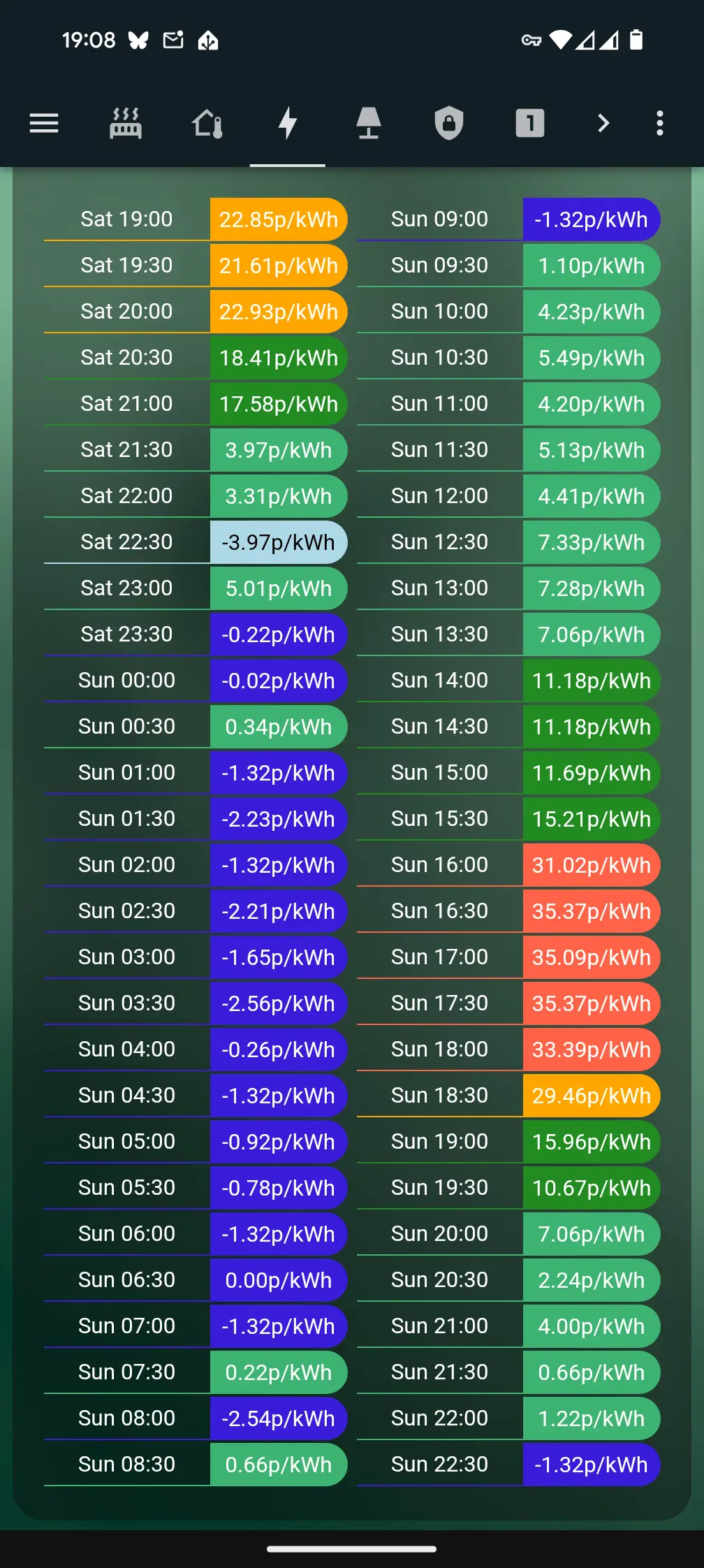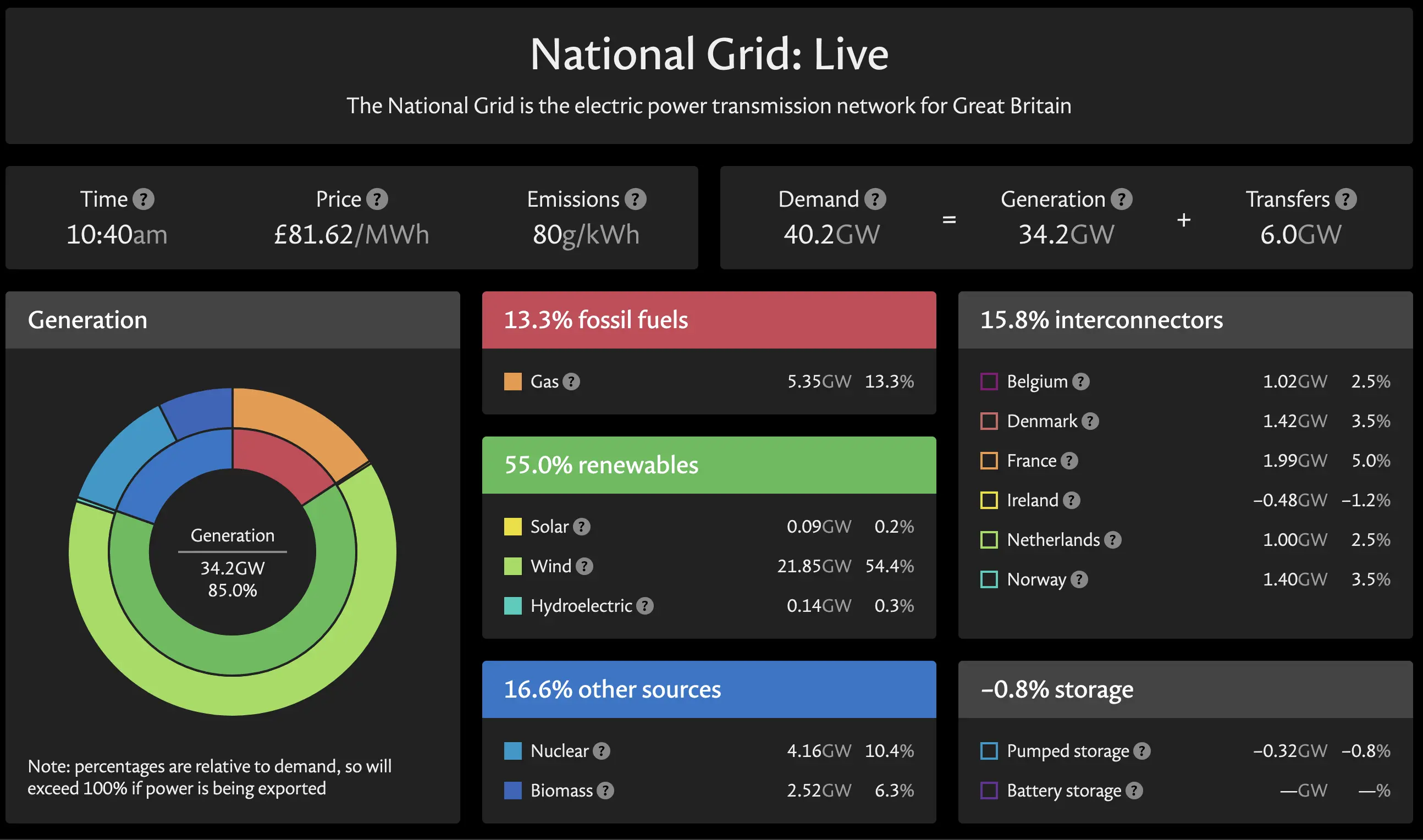UK Energy
299 readers
1 users here now
A place to post links and discussions around the UK's energy production, National Grid, energy consumption, and green energy news.
See https://grid.iamkate.com/ for the UK's current energy production and sources.
Created 23/07/23
founded 2 years ago
MODERATORS
1
2
3
11
Solar panels at rural Preston site will leave sheep room to graze beneath
(www.blogpreston.co.uk)
4
5
2
Guidehouse Selected by DESNZ to Shape the Future of Great Britain's Electricity Market
(www.finanznachrichten.de)
6
7
8
16
UK and Ireland announce deal connecting offshore windfarms to energy networks
(www.theguardian.com)
9
10
11
12
13
14
9
Energy Dashboard - real time and historical GB electricity data, carbon emissions and UK generation sites mapping
(www.energydashboard.co.uk)
15
16
17
18
19
20
21
22
23
1
UK’s smart meter targets leaving energy users short-changed, says Martin Lewis
(www.theguardian.com)
24
12
High court blocks Cumbria plan for UK’s first new deep coalmine in 30 years
(www.theguardian.com)
25
15
UK government to buy electricity system operator from National Grid for £630m
(www.theguardian.com)
view more: next ›



